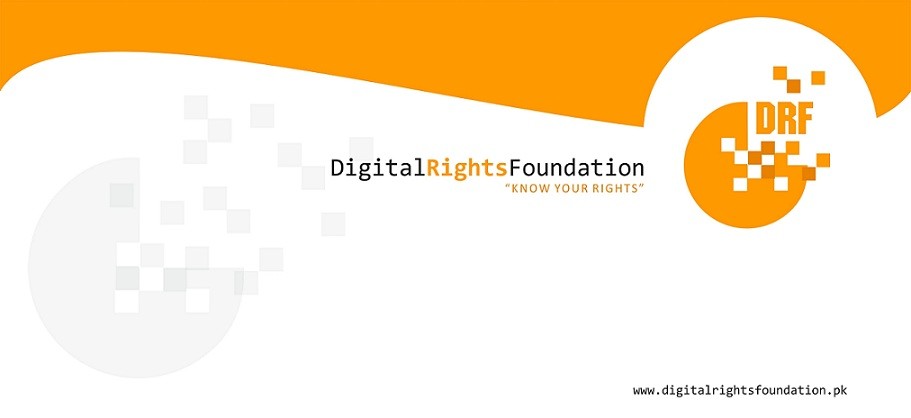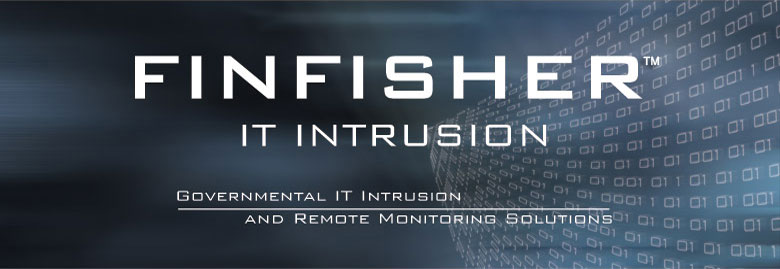June 29, 2013 - Comments Off on About the Digital Rights Foundation
All Posts in featured
June 11, 2013 - Comments Off on Pakistan: Civil Society Condemns NSA Surveillance & Data Collection
Pakistan: Civil Society Condemns NSA Surveillance & Data Collection
We the undersigned strongly condemn the collection and surveillance of Pakistani citizens’ online communications and activities by the Government of the United States of America under its National Security Agency’s (NSA) Prism Programme. Reports about the programme reveal that the NSA has been involved in large scale surveillance of citizens – both at home and abroad. In terms of data gathering from other countries, Pakistan ranks second on the list of countries from where the most amount of digital data has been collected, following only Iran.
In the past years, the Government of Pakistan has cooperated extensively with the US Government on many counts – from joint operations to alleged information sharing. However, the recent leaks reveal that this is no targeted surveillance but blanket surveillance of citizens at the whims of the US security agency.
NSA’s mass surveillance cannot be justified under national security. The Prism programme has violated the fundamental rights of citizens in Pakistan and abroad.
We call upon the Prime Minister, the Ministry of Interior, Ministry of Foreign Affairs and Ministry of Information and Technology to demand full disclosure from the US Government over this issue and protect our constitutional rights of privacy, freedom of expression and freedom of speech. The State of Pakistan must respond to this breach of rights immediately and demand an end to blanket surveillance.
[If you want to sign the statement please leave your or your organization's name in the comment section]
Signed:
Bolo Bhi
May 9, 2013 - Comments Off on FinFisher Commercializing Digital Spying – How You can be a Victim?
FinFisher Commercializing Digital Spying – How You can be a Victim?
- Shaikh Rafia
FinFisher is surveillance software by Gamma International UK Ltd marketing the surveillance solutions to government security officials through exploiting security lapses in anti-virus programs. It is basically a spyware suite designed to allow someone to spy on a computer or mobile device. Described by the company as "Governmental IT Intrusion and Remote Monitoring Solutions”, FinFisher has its command and control servers installed in around 36 countries globally, according to a report and analysis by Citizen Lab. Pakistan is one of those countries, and Pakistan Telecommunication Company Ltd (PTCL) owns the network where FinFisher server is found.
The FinSpy malware – tool of FinFisher intrusion kit – was often injected in the potential victims’ machines by sending them malicious email. In the analysis, Citizen Lab found that email addresses which were used to send these emails were on the names of some popular journalist names (in the case of Bahraini activists) and the email shared attachments which looked pertaining to the Bahraini turmoil. On opening the attachments, jpeg files were saved on the victim’s computers which were actually executable files. This sort of access gives the attacker clandestine remote access to the victimized machine with data harvesting and exfiltration capabilities. Commonly, someone tricks you into clicking a file - a picture, word document, etc – which actually hides the FinSpy file and silently affects your machine without you or the Anti-Virus program installed in your machine detecting it.
Citizen Lab found that the data like Skype audio calls, chats, key logger and passwords was accessible to the attacker. FinFisher can even secretly use the microphone or webcam in your computer or Read more
November 30, 2012 - Comments Off on 16 DAYS X 16 STORIES: TELL. LISTEN. ACT.
16 DAYS X 16 STORIES: TELL. LISTEN. ACT.
From 25 Nov to 10 Dec, Take Back The Tech! invites you to take one action per day to end violence against women. Each daily action explores an issue of violence against women and its interconnection with communication rights, and approaches different communication platforms - online and off - in creative and tactical ways.Take Back The Tech! End violence against women.
DAILY ACTIONS
16 DAYS X 16 STORIES: TELL. LISTEN. ACT.

The act of storytelling is transformative.
When you tell a story, you are defining the experience. You are naming the actors, narrating the event, framing the values and deciding which details matter. In other words, you are constructing reality.
When you listen to a story, you are allowing your point of view to be shifted, and be immersed into another reality. When you listen actively, you are also moved through more profound understanding.
The world is made up of many, many stories. Some are more loudly told and heard than others, while some are shared in smaller circles. Often, it depends on who is telling the story and how much power they have in the context where it is heard.
If we pay attention to stories that are less easily heard, then we are contributing to changing who has power.
If we make the effort to tell stories that are not familiar, then we are actively participating in shaping what matters.
Take Back the Tech! From 25 Nov to 10 Dec, take part in the 16 days of activism and take control of technology to tell, listen and share transformative stories. Document, inspire, converse and collectively envision the end to violence against women.
16 DAYS X 16 STORIES
We will be featuring a story every day for 16 days. Each story will present the different ways that internet and mobile technologies affect the lives of women and girls in different parts of the world.
Some are stories by women and girls who have experienced violence online or through the use of digital technologies. Some are stories that subvert ideas of technology, gender roles and harm. Some are stories that imagine a world free from violence against women – with wit, gravity, humour and imagination.
Visit the Take Back the Tech! campaign site throughout the 16 days and listen to each story. Find out more about the very real ways that internet and mobile technologies intersect with violence against women, and be inspired, moved and challenged to take action for change.
This year’s campaign is inspired by Take Back the Tech! Pakistan’s 16 days of activism campaign in 2011.
1) TELL A STORY
Be part of the 16 days story circle and tell your own powerful story of transformation. The stories can be about:
- How you have personally experienced, been affected by or took action to challenge violence against women online or through mobile phones.
- Creative collation and storytelling based on different cases that you have heard, read or come across.
- Interviews with different women on their stories or opinions on why internet and mobile technologies are feminist issues and strategies on online safety.
- Fictional and fantastical accounts of alternate realities that challenge how we think about internet and mobile technologies, power, gender relations and/or violence.
- Or any other story, actually experienced, inspired or imagined.
THEMES
We want to amplify and share stories that surface the different ways that violence against women, feminism and internet and mobile technologies intersect. Below are some thematic ideas to begin with:
- Online harassment and cyberstalking
- Trolling and online sexism
- “Love”, violence and internet technologies
- Privacy in a public digital space
- Sexuality online
- Girls and internet technologies
- Feminism, activism and online threats and possibilities
- Culture, gender roles and internet technologies
- Strategies to be safe online
And other thematic areas that you think are important in relation to this issue.
STORY FORMATS
Format and styles can be as diverse as Take Back the Tech! campaigners who come from different parts of the world. For example:
- Videos (digital stories, interviews, mash-ups, recordings of live events, music video, webcam diaries, claymation etc) – most online videos are less than 3 minutes because of bandwidth and online viewing dynamics.
- Audio clips (storytelling, drama, songs, podcasts etc)
- Captioned photos, comic strips or collages
- Performance theatre, comedy, scripts
- Retellings of folklore and mythology or science fiction
- Poetry, haiku, blog posts
- Embroidery…wherever your creativity moves you.
They can be in first or third person, in the language you are comfortable in, or use no language at all.
Note on privacy
- Check if your content/story reveals personal information about yourself or others that you don’t want to share.
- This includes recognisable pictures or information about location, identity, age, occupation etc.
- Check “Be safe” section on what you can do to address some of these issues.
SHARE YOUR STORY
You can share your story as part of this campaign in several ways:
- Email us at: ideas AT takebackthetech DOT net
- Create an account on the site to upload your story directly. If your story is in written form, you can publish it as a blog post on the site.
- If your story is in different media formats - e.g. video, audio, photographs, images etc, you can find out how to upload content here.
- Or if you have posted it in your own online spaces (blog, tumbler etc), then let us know by sending us a link on Twitter, or post it up on our campaign Facebook page.
2) LISTEN ACTIVELY
Visit the campaign site every day throughout the 16 days to listen to the stories.
Find out more about the very real and different ways that internet and mobile technologies affect the lives of women and girls in different parts of the world, and how gender-based violence is a significant aspect of this reality.
Build your knowledge and deepen your understanding about the issue.
RESPOND
- Let the storyteller know how the story moved you by leaving a comment.
- Participate in our Twitter #16stories conversation.
- Grow the story circle and respond with your own story. Follow the story guide above to tell your story.
- Share resources about the issue that the story surfaces.
- Build knowledge and share your ideas, thoughts and strategies on how to deal with situations of violence against women online.
- Listen actively.
3) TAKE ACTION: MAP IT
If you have experienced violence against women online, or know of someone who has, or have come across news reports about such incidents, document it on the Take Back the Tech! online map.
The Take Back The Tech! map on technology-related violence is in several languages including Arabic, Urdu, French, Spanish, Bosnian and others.
In addition, Take Back The Tech! campaigners in Bosnia-Herzegovina, Colombia, Democratic Republic of Congo, Kenya, Mexico, Pakistan and the Philippines are coordinating country-specific maps, which will be aggregated to the global Take Back the Tech! map.
The reports will be used for advocacy efforts and to inform capacity building strategies on online safety. We will be bringing your stories, experiences and concerns to the UN meeting in 2013 on women's rights that will be focusing on violence against women, to include technology-related violence against women in the discussion.
TO MAP:
- Go to: https://www.takebackthetech.net/mapit
- Click on “submit a report”
- Reports can be your own personal experience, or with permission from them, the experience of others.
- Reports can also be from the news.
- To find out more about how to map, go to: “how to report”
Help us build a body of knowledge and document the experiences of violence that women and girls face online and through the use of internet and mobile technologies.
Collectively, we can make the invisible visible and demand for recognition and change.
Stories can change the world. Take control of technology and share your story!
From Take Back the Tech!



